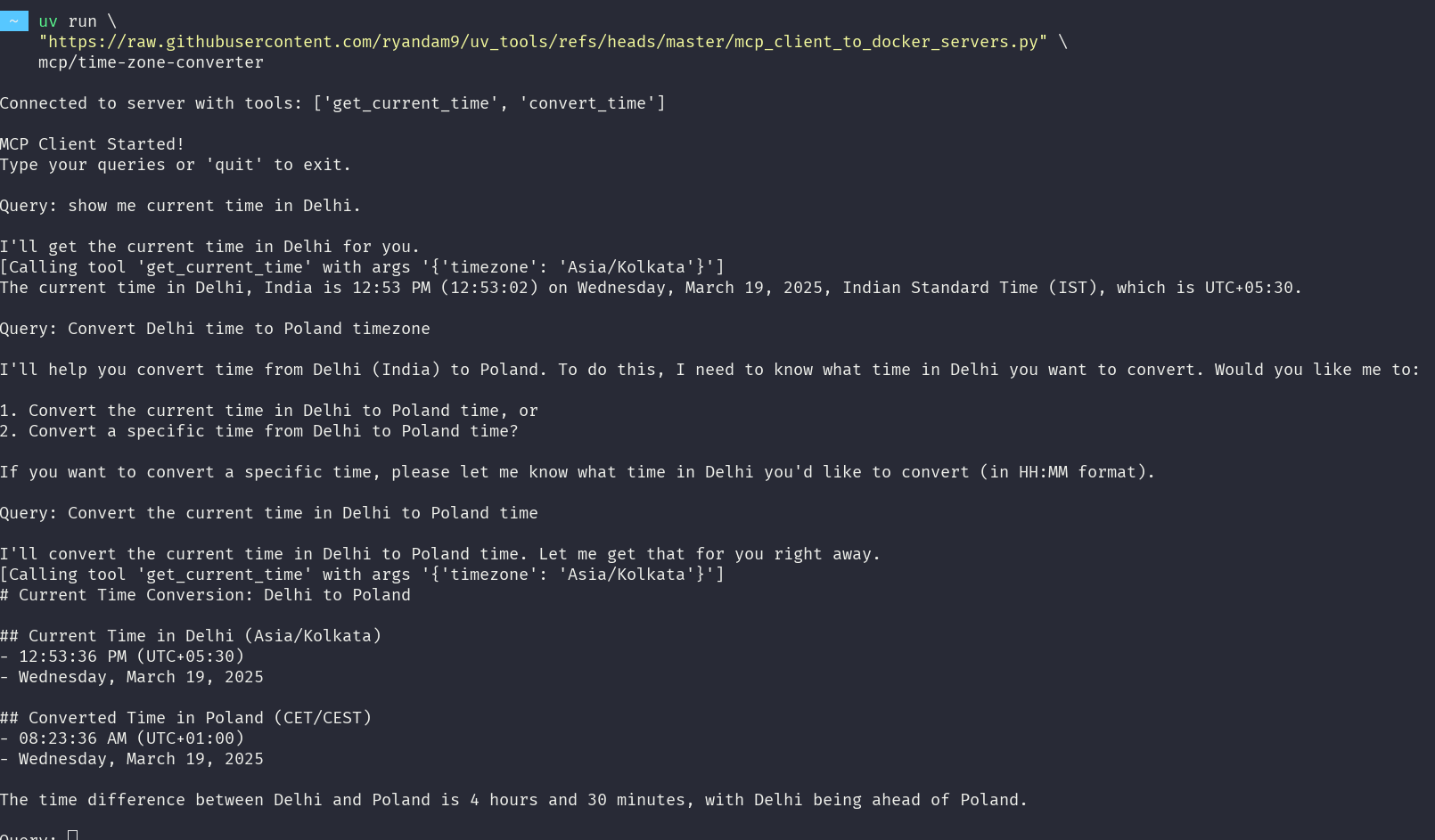MCP Client
- 2025/03/16
I was going through Model Context Protocol (MCP), Smolagents documentation and trying the samples included.
With Smolagents, tools provided by MCP servers can be added to agents. https://huggingface.co/docs/smolagents/tutorials/tools#tool-collection-from-any-mcp-server
from mcp import StdioServerParameters
from smolagents import ToolCollection, CodeAgent, LiteLLMModel
server_parameters = StdioServerParameters(
command="docker",
args=["run", "-i", "--rm", "mcp/time-zone-converter"]
)
model = LiteLLMModel(model_id="anthropic/claude-3-5-sonnet-latest")
with ToolCollection.from_mcp(server_parameters) as tool_collection:
agent = CodeAgent(tools=[*tool_collection.tools], model=model, add_base_tools=True,
additional_authorized_imports=["json"], )
result = agent.run("What is the time in Melbourne now.")
print(result)
result = agent.run("Convert Current time to Poland time.")
print(result)
I thought how an agent can know what tools are provided by a MCP server, and the required arguments to use when calling a tool.
There is a sample MCP client available here - https://modelcontextprotocol.io/quickstart/client. I updated it a little to include run MCP servers using Docker. It is available here.
One nice feature of uv is that, a script's dependencies can be specified in the script itself without using other approaches like using requirements.txt, etc. When running a script with uv run, it creates a virtual environment on the fly and installs the dependencies.
uv run \
"https://raw.githubusercontent.com/ryandam9/uv_tools/refs/heads/master/mcp_client_to_docker_servers.py" \
mcp/time-zone-converter
mcp/time-zone-converteris the Docker image created from Time MCP Server.
